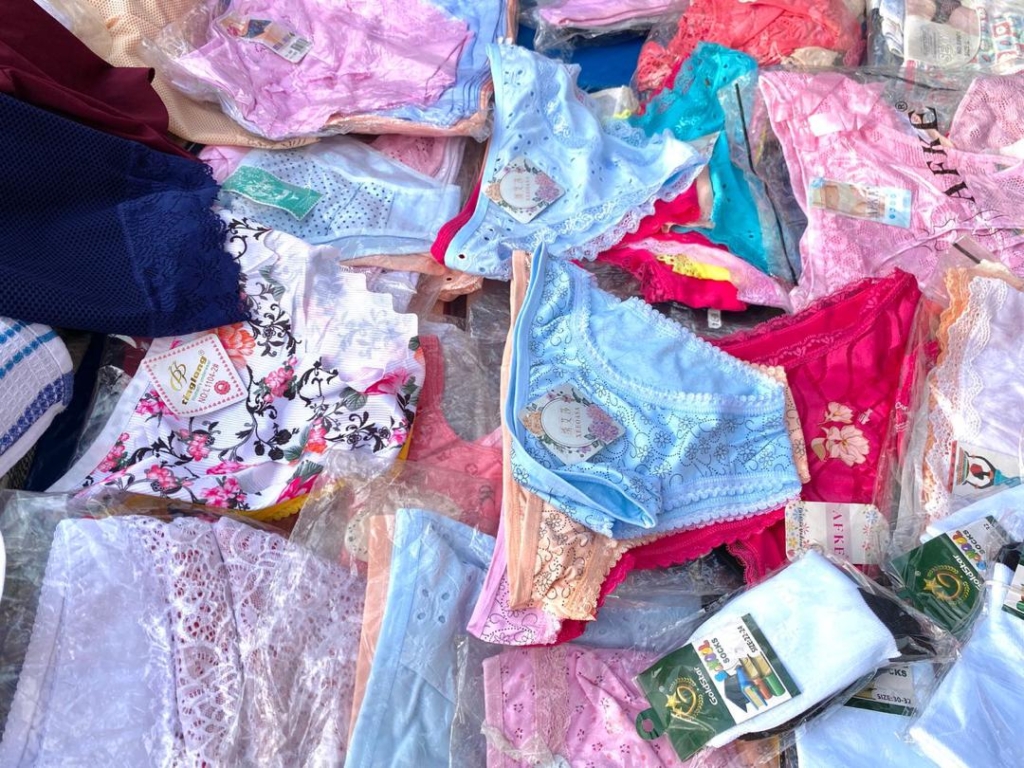It is fast becoming the new vogue for many women in Ghana to avoid wearing panties underneath their casual and formal attires.
A significant number of both the young and old are citing current high heat waves as reason for their refusal to put on the knickers as it presents them with discomfort.
They also allude that the heat trapped in the undergarment has some health implications.
Faustina Boateng, a trader at Ayigya, has for the past decade not seen panties in her closet after throwing away the ones she owned.
She revealed that a combination of multiple undergarments prevents ventilation to the sex organ, resulting in a pungent smell.
“I can’t wear panties, underwear, and jeans together, it is too much of a bother for me. I can’t occupy my mind with concerns about funeral contributions as well as water and electricity bills, and still fuss over wearing panties,” she stated.
The past months have witnessed temperature increase across the globe with February reported to be the hottest month thus far.
Despite the growing weather concern, some women still opt for the undergarment occasionally.

Nana Adwoa, an accessories vendor at Tech Junction in Kumasi, indicated that the intense heat makes it unbearable for her to wear panties while working, but opts for shorts.
She only wears panties during her menstrual flow.
“I only wear panties when I am on my period because the heat that comes with wearing panties is unbearable for me. I prefer wearing cotton underwear to be comfortable always. Intense heat can cause odour at the private part and infections which is not advisable,” she lamented.
The new normal is affecting sales of panties on the market as vendors bemoan financial losses.
A lingerie retailer, Afia Yeboah, is lamenting the challenging market conditions, as she records decline in the purchase of her wares.
She previously could order dozens of panties to sell, but she struggles to sell three panties now.
“You could stock up on dozens of panties, and yet a whole year might pass without even one being bought,” she said.
According to her, “It has been two weeks since I came from my hometown and no one has purchased a single panty.”
This issue is not just a concern for women, some men find it sexually appealing for their spouses not to wear panties.
A shoe seller, DJ Akoko, says he is against his girlfriend wearing panties during visits, citing potential discomfort due to the hot weather. He believes the situation is a turn off for intimacy.
A university student, Bernard opoku, shares an opposing view. He prefers his girlfriend in panties, which he says makes him sexually active.
“I prefer G-strings to fuller coverage styles. The G-strings look more appealing especially when the lady has a curvier physique,” he emphasized.
Amidst these changing trends and rising temperature, women have been advised to put on cotton panties instead of nylons since they have no effect on the private area.
Gynaecologist at the Komfo Anokye Teaching Hospital, Dr Baffour Opoku Junior, emphasizes the importance of undergarments as a proactive measure for women’s health.
According to him, underwear serves to protect the skin and private parts from the external environment, particularly during menstruation or increased vaginal fluid discharge.
However, he says it is advisable to forgo underwear during sleep or at home. But he emphasized caution with second-hand clothing.
“The primary function of underwear is to offer direct protection for the skin and intimate areas from the external environment. This protection is especially crucial during events such as menstruation or increased vaginal fluid discharge, as underwear serves as a secure medium for holding pads in place. However, underwear can also pose a risk of infection, particularly fungal infections, if not properly maintained.
“Wearing tight underwear can lead to irritation on the vulva and even result in ingrown hairs, particularly after shaving, causing significant discomfort and posing potential health risks,” he added.
Dr Baffour is therefore advising women to go in for cotton undergarment instead of the nylons to reduce the risk of irritation or infection.

